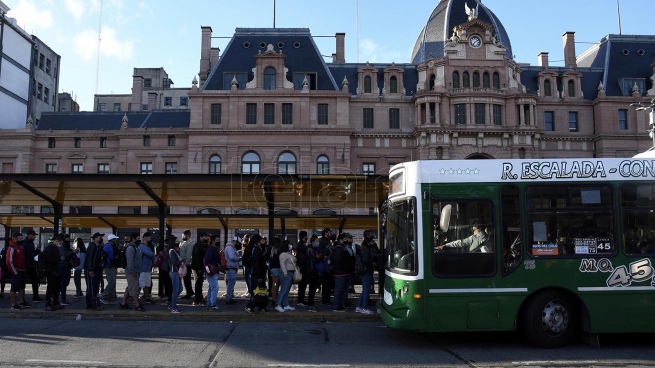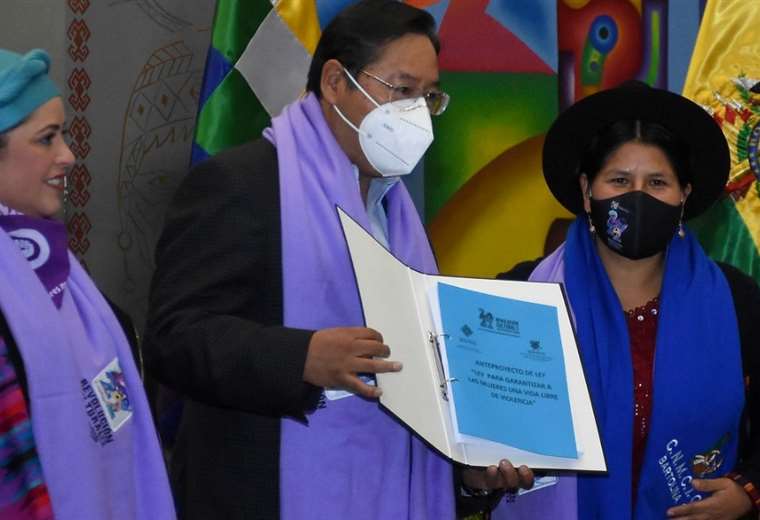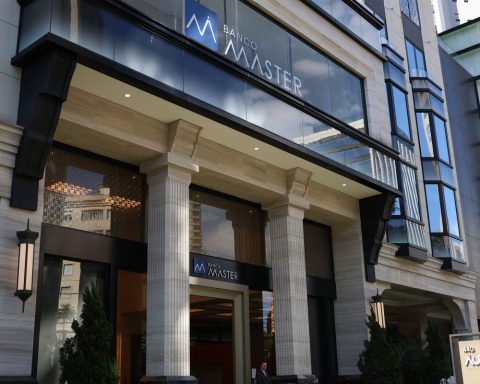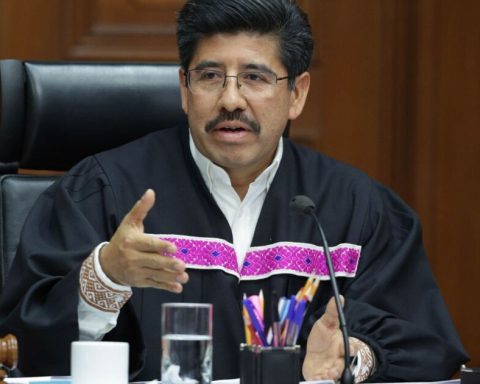Representatives of the passenger automobile transport chambers of the Buenos Aires metropolitan area will be received tomorrow at 11 at the Ministry of Transport to analyze possible responses to the claim for subsidies that led companies this Tuesday to halve the frequencies of buses, which caused inconveniences during the second day of the winter holidays.
Thousands of passengers from the AMBA area made long lines at the main bus stations and they waited between 40 and 50 minutes for the arrival of the units in the main terminals such as Plaza Constitución and Once, with the aggravating circumstance that many groups did not stop when they arrived loaded with passengers.
In Constitution Squarebad mood and fatigue was the common denominator among the passengers, since the delays in some cases reached the time to take a bus.
Alberto Pérez, who was waiting for a bus to take him to Berazategui, told Télam that he had been waiting for half an hour for the arrival of 129
“I’m very tired, I’ve worked all day and all I want is to get home,” Pérez said indignantly, who minutes later changed his mood when he saw that the transport he had been waiting for so long approached the stop.
For her part, Irma, who was with three other passengers waiting for bus 4, stressed that she was waiting “50 minutes ago” and that there were many who did not stop.
“I went to other bus stops and the situation is the same. People are tired and don’t know what to do,” he remarked.
At the 61 stopa young man who had just finished taking an exam, pointed out that “waiting for the bus is just as or more stressful than the ending I just gave”.
at eleven station, the panorama was more bleak. At some stops there were more than 70 passengers who, outraged by the situation, began to complain.
At the 86 stopwhere there were more people lining up, the situation began to worsen due to the arrival of the night and the cold.
Lucia is a merchant who travels every day from the Buenos Aires municipality of Cañuelas and affirmed that on a normal day her trip lasts “two hours”.
“This morning I had to leave much earlier than before. The groups that come to the city don’t pass by as often and this situation aggravated everything,” he remarked.
And he added: “Although I agree with the claim, this affects all passengers because we not only arrive late at our homes but also travel more uncomfortable than usual.”
At some stops there were up to four rows of passengers of 30 people each
Ricardo, a man who lives in the municipality of Quilmes, indicated that he was waiting “an hour” for the bus. “This group takes time under normal conditions but now it was terrifying.”


















